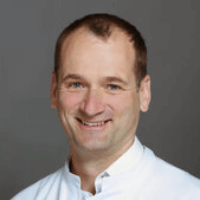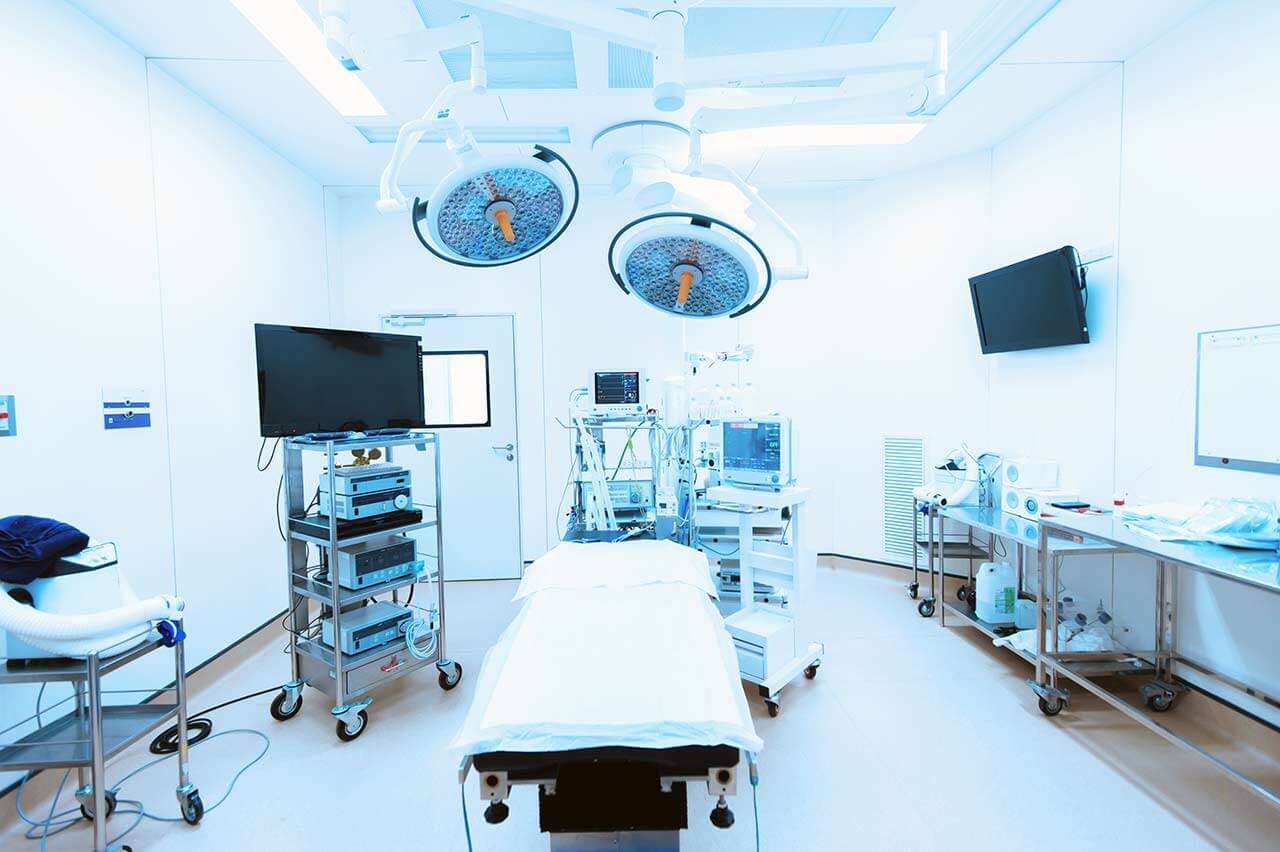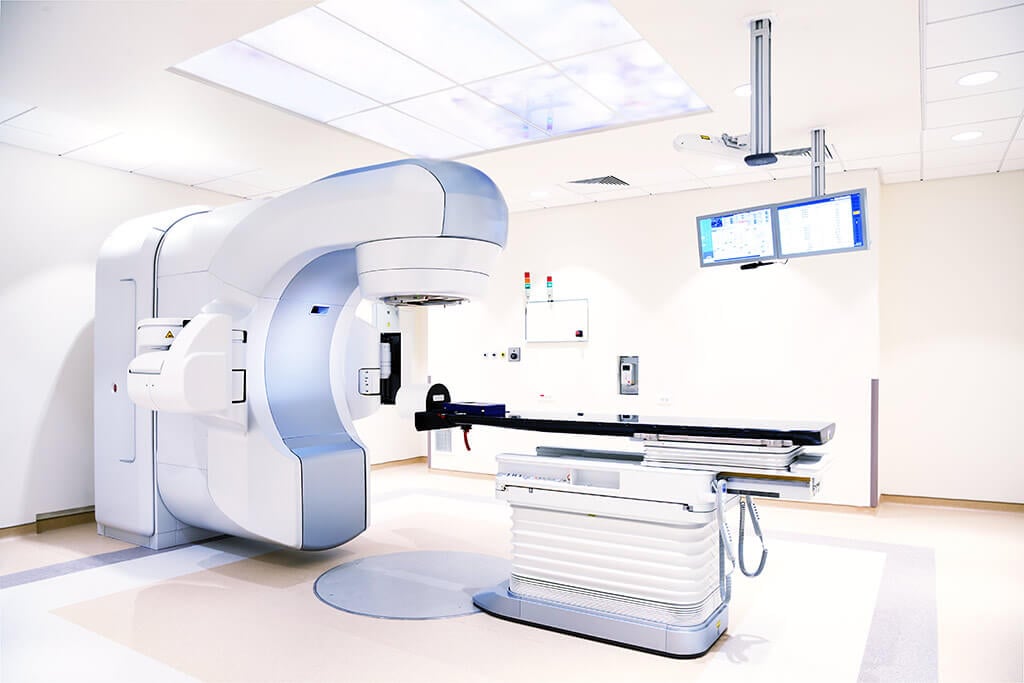
About the Department of Cardiology at Catholic Clinic Koblenz-Montabaur
The Department of Cardiology at the Catholic Clinic Koblenz-Montabaur provides medical care to patients with cardiovascular diseases. The department has two high-tech Cardiac Catheterization Laboratories, in which an experienced team of cardiologists performs various interventional diagnostic and therapeutic procedures. The department is also proud of its modern diagnostic equipment for echocardiography, including transthoracic, transesophageal, 3D echocardiography, stress echocardiography, color Doppler echocardiography, electrocardiography, intravascular ultrasound scanning, cardiac CT and MRI scans, and other tests. As for the treatment, the department's therapeutic options include both conservative methods and interventional procedures, such as percutaneous transluminal angioplasty, high-frequency rotablation, stent implantation for coronary artery stenosis, balloon valvuloplasty, transcoronary ablation of septal hypertrophy, etc. The department also has a Chest Pain Unit certified by the German Cardiac Society (DGK). The department's doctors thus have all the necessary resources to provide patients suffering from heart pathologies of varying severity with top-class medical care. The department is headed by PD Dr. med. Felix Post.
The key interest for the department's team of cardiologists is performing interventional therapeutic procedures in the Cardiac Catheterization Laboratory. Interventional treatment for heart disease is a modern alternative to a full-fledged operation, which is associated with high risks to the patient's health. Interventional procedures are highly effective and also have a number of advantages over cardiac surgery, including a low trauma rate, high safety, low risks of infection, and rapid patient recovery after the completion of treatment. In addition, most interventions are performed under local anesthesia.
One of the most requested interventional procedures in the department's clinical practice is balloon valvuloplasty, which is indicated for patients with valvular stenosis. An endovascular intervention is performed using a percutaneous approach through blood vessels under echocardiography guidance. Balloon valvuloplasty uses special miniature instruments: a doctor inserts a catheter through an artery in the groin and directs it toward the affected heart valve. Upon reaching the narrowed section, the balloon device attached to the catheter inflates, resulting in the expansion of the heart valve lumen and the elimination of adhesions between the leaflets of the heart valve. Balloon valvuloplasty is performed under local anesthesia. The duration of the interventional procedure is about an hour. Within a few hours after valvuloplasty, the patient is under medical supervision. The very next day after the intervention, the patient can leave the clinic and return home.
The department's cardiologists also regularly demonstrate high success rates for high-frequency rotablation. This intervention is performed for coronary artery atherosclerosis. Angioplasty followed by stenting is used to treat pathology, but in the case of severe atherosclerosis, high-frequency rotablation is the optimal method of treatment. Today, this therapeutic manipulation allows many patients with coronary artery atherosclerosis to avoid coronary artery bypass grafting, which is an open, traumatic surgery. During high-frequency rotablation, the pathological focus is approached through a puncture in the area of the femoral or radial artery, so doctors do not need to make any incisions on the chest. Thus, the initial stage of the procedure is to perform a puncture of the femoral or radial artery, through which a special guiding catheter is delivered to the target area. At the next stage of the endovascular intervention, a special miniature drill (rotablator) with diamond coating is delivered to the coronary artery affected by atherosclerosis under imaging guidance. By performing fast rotational movements, the rotator breaks the atherosclerotic plaque into tiny fragments, due to which the blood vessel lumen expands. Microscopic particles of the destroyed atherosclerotic plaque are washed out of the coronary bed with the blood flow without posing any danger to human health. The final stage of high-frequency rotation is the implantation of a special stent to prevent recurrent coronary artery occlusion. The intervention takes about 2 hours. It should be noted that the performance of this procedure is quite complicated from a technical point of view. Therefore, it is offered only by leading Cardiology Centers in Europe and around the world. Recovery after such treatment occurs extremely quickly, and after a few days, the patient is discharged from the department.
Interventional procedures to close an atrial septal defect and a patent foramen ovale are also quite often performed in the Cardiac Catheterization Laboratories of the medical facility. Normally, the right and left sections of the heart are separated from each other by a special thin wall called a septum. With an atrial septal defect, the left and right atria communicate, causing blood from the left atrium to flow into the right and then into the right ventricle and pulmonary artery, causing stretching and overloading of these parts of the heart, which is associated with the risk of developing serious health problems. A patent foramen ovale is an opening in the atrial septum that usually closes on its own after birth. For the treatment of both of these pathologies, the department offers an interventional procedure to implant an occluder: a doctor makes a small skin incision or puncture in the femoral vein, through which a catheter with a folded occluder is inserted into the vein. The catheter is moved through the blood vessels to the desired area under imaging guidance, where the specialist implants the occluder, thereby eliminating the atrial septal defect or closing the patent foramen ovale. As a rule, the patient is discharged the next day after the procedure. Within six months after the intervention, aspirin is required to prevent thrombosis.
The department's range of medical services includes:
- Diagnostic options
- Classic echocardiography
- Transthoracic and transesophageal echocardiography
- Doppler ultrasonography (color Doppler echocardiography)
- Stress echocardiography using pharmaceuticals or ergometry
- 3D echocardiography
- Doppler ultrasound for examining blood vessels
- Ultrasound scanning of the abdomen and thyroid gland
- Puncture
- Stress electrocardiography
- Tilt table test
- Ambulatory blood pressure monitoring
- 24-hour Holter ECG monitoring
- Comprehensive laboratory diagnostics
- Cardiac imaging tests: cardiac CT and MRI scans
- Cardiac catheter-based examinations
- Intravascular ultrasound (IVUS)
- Fractional flow reserve measurement
- Catheter-based left and right heart rest and stress diagnostics
- Coronary angiography
- Myocardial biopsy
- Therapeutic options
- Drug therapy
- Interventional therapeutic procedures
- Percutaneous transluminal coronary angioplasty
- Balloon valvuloplasty
- High-frequency rotablation
- Interventional closure of a patent foramen ovale and an atrial septal defect with an occluder
- Transcatheter left atrial appendage closure
- Transcoronary ablation of septal hypertrophy
- Punctures for therapeutic purposes
- Interventional procedures on peripheral and neck blood vessels
- Other diagnostic and treatment methods
Curriculum vitae
Since June 2014, PD Dr. med. Felix Post has been the Head Physician of the Department of Cardiology at the Catholic Clinic Koblenz-Montabaur. Prior to this, the specialist worked as a Managing Senior Physician at the University Hospital Mainz (1996 - 2014). Dr. med. Felix Post received his medical education at the Johannes Gutenberg University Mainz (1990 - 1996). He is board certified in Cardiology and has additional qualifications in Interventional Cardiology, Intensive Care, and Sports Medicine.
During the worldwide COVID-19 pandemic, Dr. Post headed a task force and worked as Deputy Head of the COVID-19 Situation Center at the highest level. He is also a Member of the Ethics Committee of the Rhineland-Palatinate Medical Association. He was a doctor on the 1 FSV Mainz 05 team for many years.
Photo of the doctor: (c) Katholisches Klinikum Koblenz - Montabaur





